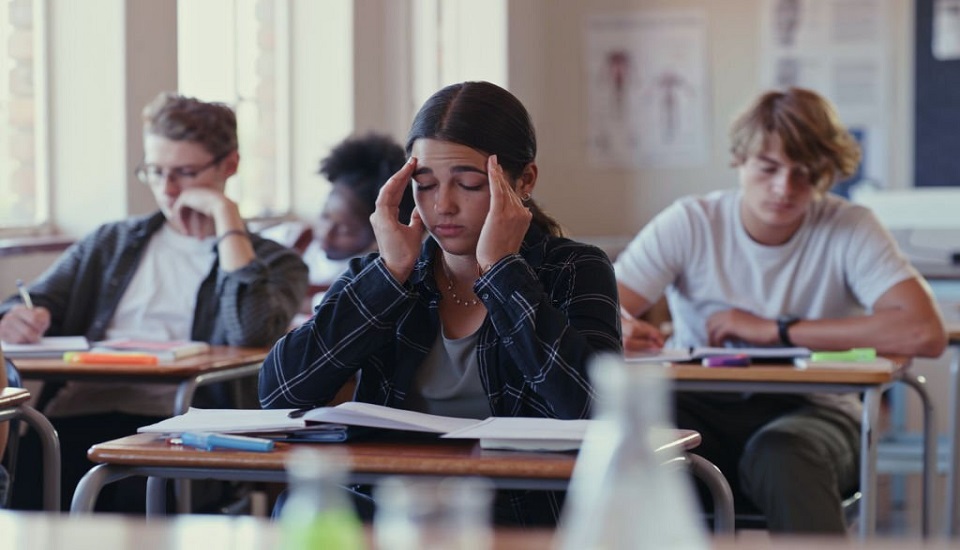As a teacher working in a 21st century classroom setting you to know that stress is an inevitable part of the everyday schedule. Most learners go through noteworthy amounts of stress, and this can take a substantial toll on health, happiness, and grades. For e.g.: a study found that teen learners report stress levels that are similar to adults.
It implies that teens are undergoing substantial levels of chronic stress, and that they feel their levels of stress normally surpass their ability to cope with it. Approximately 30% of learners report feeling overwhelmed, depressed, or down because of it.
Stress even triggers health-related issues such as disturbed sleep patterns, loss of appetite, and unwillingness to exercise as well, thus taking a larger toll. Provided that nearly half of those who took part in the survey reported completing 2-3 hours of homework per night in addition to their full day of school work and extracurricular, which is reasonable.
Most students feel the need to relieve stress, but with all the activities and responsibilities that fill their schedule, it often becomes difficult to find the time to try any stress relieving activity to help disperse that stress. The below mentioned options are relatively easy, quick, and relevant to a student’s life and types of stress, which a teacher can suggest.
The following is a list of suggestions on how teachers who underwent a Counselling Courses for Teachers program can play a vital role in coping with stress.
Reducing Stress in the Classroom
- Students need to understand stress and the ways to cope with it
Make them aware of how to identify stress in themselves and others which will help them deal with the situations in a better way. Most high school students undergo stress that originates from school and related activities. Also, chronic stress can continue into high school and then college years and lead to academic disengagement and various mental health problems.
- Learners need an adult they confide in
Building a positive student-teacher relationship is essential to reducing stress. For children at risk, they require someone with a calming and empathetic presence that they can always approach when in need.
- It’s necessary for teachers to allow social connectivity within the classroom
Human beings have an innate need to form relationships and connect to other human beings. That’s the reason we want to cultivate loving relationships, fit into a class, cheer on a team, and even check our Facebook profiles. Practising a classroom culture of ‘All for one and one for all’benefits the entire group along with the individuals within that group.
As a teacher adept in counselling techniques, you need to keep it in mind when developing lesson plans for the learners. The feeling of being socially connected, in a wholesome environment, helps build healthy relationships. Having good social relationships acts like a booster and increases oxytocin and reduces cortisol.
- Time management is the key
People tend to get less stressed when they’re organized. Allow your learners to have flexible submission dates for assignments. This will lower their anxiety levels about due dates while keeping them motivated and productive.
- The significance of acknowledging
Acknowledge students’ effort either by giving them a star for their effort or by providing extra points. This encourages them to take put in extra effort and persevere.
- Mindfulness
Developing minute awareness of one’s surrounding environment will help learners focus on the current activity while reducing anxiety and help improve their coping potentialities in the future.
- Allow individual needs
Try reducing the tension especially for some students in case of any high-anxiety situations. If a learner doesn’t like reading orally, call them only when they are well prepared. To assist with test anxiety, prepare students from beforehand so that they are not tensed the day before or of the test.
- Include physical activity
It is alarming to see the number of schools that are cutting back or completely eliminating their recess time. There’s nothing that could be worse than this for child development. Apart from developing during the early childhood days, the human body requires activity, and stress can be greatly decreased with any kind of physical movements. Even taking the class outside for a short walk will reduce any trace of stress or anxiety.
- Keep the humour alive in the classroom
A good laugh has many benefits. Not only does it lightens your mental load, but also affects your entire body. It activates your stress response and then calms down any panic inducing factor, thus providing a relaxed feeling. Laughter releases dopamine which helps reduce stress and increases memory. Keep the fun and laughter alive in the classroom to see smiling faces behind desks.
- Ensure lessons reach a deeper learning level
Authentic performance tasks and project-based learning (PBL) deepens a learner’s comprehension regarding both factual and conceptual levels. If the teacher’s aim is to simply test students’ preparation, they may face a difficult time applying what they’ve learned to find answers to certain questions or problems. This is why deeper learning is one of the best test preparations a teacher can actually provide to aid in reducing the anxiety. Presenting lessons and information in a meaningful way to the learners enables the brain to effectively store those, thus making them easier to retrieve.
In conclusion:
Stress, in a way, hijacks the brain when it comes to learning. Thus, educators need to be aware of the stress their students are undergoing in the classroom and also in their personal lives. Although we have no to little control of what happens outside the classroom, still with school counselling, necessary support and help can be provided which the learners may need to deal with any stressful times. With an understanding of how stress affects learning, 21st century educators with counselling approaches can help build their student’s emotional resilience along with activating their highest levels of cognition.
Written By : Ashwini Chandra








